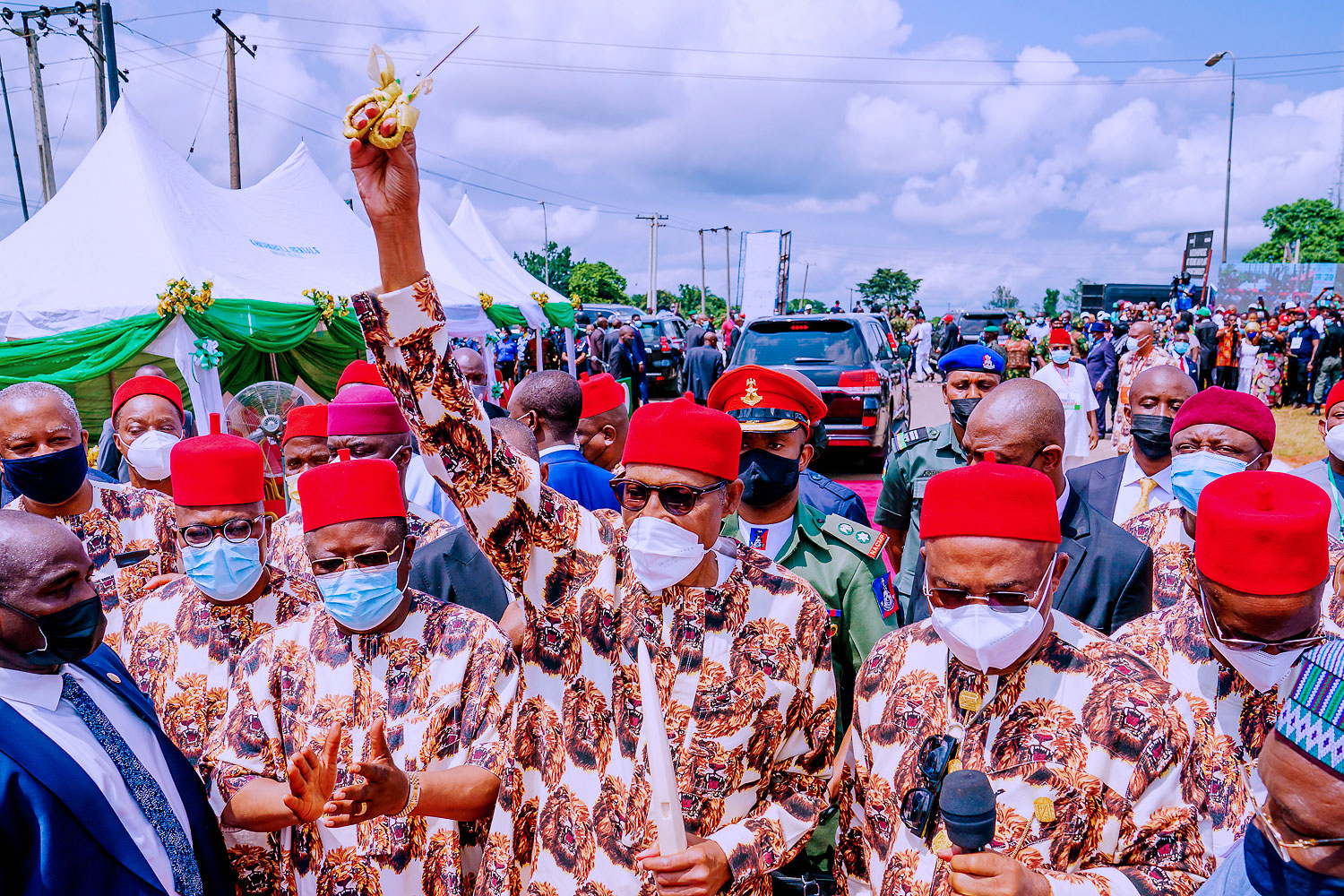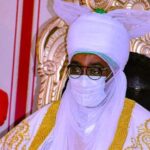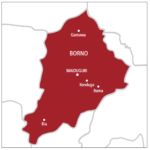On Thursday 9th of September, three Nigerians emerged on top at the occasion of the visit of president Muhammadu Buhari to Owerri, President Mohammadu Buhari (GCFR), the host, Governor Hope Uzodinma, and the President of Ohaneze Ndigbo, Ambassador George Obiozor. The visit was a risky bet for the trio. For PMB, I am not sure he expected everyone to roll out their drums for him, but he received a vast crowd of party supporters who are his political troops in the South East. He made the right statement, clad in Igbo attire, and not cutting the picture of the conqueror of the Igbos that some had painted him in. He delivered it straight and simple: the Igbos have no reason to be out of Nigeria and Nigeria needs the enterprising input of Ndigbo.
Governor Uzodinma did the good work of a facilitator to set the stage and won for himself a huge seat as a peacemaker. George Obiozor, an experienced diplomat, who had once headed the Nigeria Institute for International Affairs (NIIA) and was Nigeria’s representative to the United Nations after a distinguished diplomatic career, lived to his billing. He spoke the way elders should speak, making demands without being rude. We cannot take it away from the critics of the APC Government that they will have their own interpretation of the speeches, but the impact of this visit cannot be diminished. The visit presented the opportunity for peace in the South East, given the true window for rapprochement between belligerent forces and the sovereign representatives of a Federal State. This has opened the stage for the re-set of relationships.
- Winners shortlisted for Impact Africa Elevator Pitch Competition
- ECOWAS freezes financial assets, places travel ban on Guinea junta
The elders of Igbo land know better what war means than the young men who have only read it in books and watched it in movies. They know that is not a direction to face. I have been to testy spots in the world such as the Demilitarized Zone (DMZ) Demarcation line at Pan Mun Jom, between North and South Korea, in a solidarity March with Lim Su-kyung in July 1989. She was a South Korean student leader then, who was known as a flower for reunification at the 13th World Festival of Youth and Students, held in Pyongyang, North Korea. I attended as one of the delegates of All-Africa Student Union (AASU). On our way down, we saw first-hand evidence of the carnage of the Korean war and the aftermath. Nuclear arsenals pointing towards the two Koreas and the dividing army of a superpower United States. At any mistake, hundreds of thousands can evaporate in seconds, including the solidarity marchers.
The second time I visited a similar spot was in Syria, before the war broke out, and it was the funeral of Hafez al-Assad “the lion of the dessert”, who is the father of the current Syrian president. I was on the delegation of the Federal Government, led by the then Foreign Affairs Minister Sule Lamido. From the airport where we were picked to the hotel, we saw mourners crying in the streets, in their thousands, in unison, mourning their departed hero. In the evening, the Nigerian Ambassador to Syria, Ambassador Abdul Ganiyu, came to give us some briefing that the wailing should not sway us on the streets. He added Damascus was tense and that several things have happened in Damascus capable of leading to war. In the morning, they gathered all Foreign visitors in a hall to pay our respect to Hafez al-Assad. To my left was Robin Cook, former British Foreign Secretary, and to my right was Benazir Bhutto, former Prime Minister of Pakistan. The rest is history. How I wish there was a power on Earth capable of acting on Ambassador Abdul Ganiyu’s warning, as it would have spared Syria millions of deaths.
In one of my term papers in my master’s class in Global Affairs in the University of Buckingham, United Kingdom, I examined the military factors in the rise and fall of empires, from antiquity to the modern era, and there has been a widespread distribution of weapons of war and tactics of warfare that makes “total victory” almost impossible and diplomacy and peace building inevitable.
It is truer in the era of globalization, given that combatants are Non-state actors and given that modern warfare has moved from Kinetic to include the Cyber realm. Peace building and prompt conflict resolution are proving to be a fundamental part of modern state building and management. PMB’s initiative is a realism of this genre, and one should not expect less with inclusion of Professor Ibrahim Gambari in his Kitchen Cabinet as Chief of Staff, a man who has made a career of diplomacy and peace building for almost five decades.
Thank God for elders like Obiozor leading Ndigbo now and a sensible Governor as Uzodinma and with the disposition of president Muhammadu Buhari, there is a genuine opportunity for peace in the East.
We can expect the mechanism already created by the facilitators to include an agenda for discussion of all items that may lead to the release of the unidentified youths from detention, which I believe includes Nnamdi Kanu. The state, through the attorney general, has the power of nolle prosequi for crimes in the intent of peace and stability. I guess one condition for peace will be for the youths to renounce violence, as every self-respecting government will make that a condition. This is the route we need.
Mr Gbenga Olawepo-Hashim writes from Abuja

 Join Daily Trust WhatsApp Community For Quick Access To News and Happenings Around You.
Join Daily Trust WhatsApp Community For Quick Access To News and Happenings Around You.


